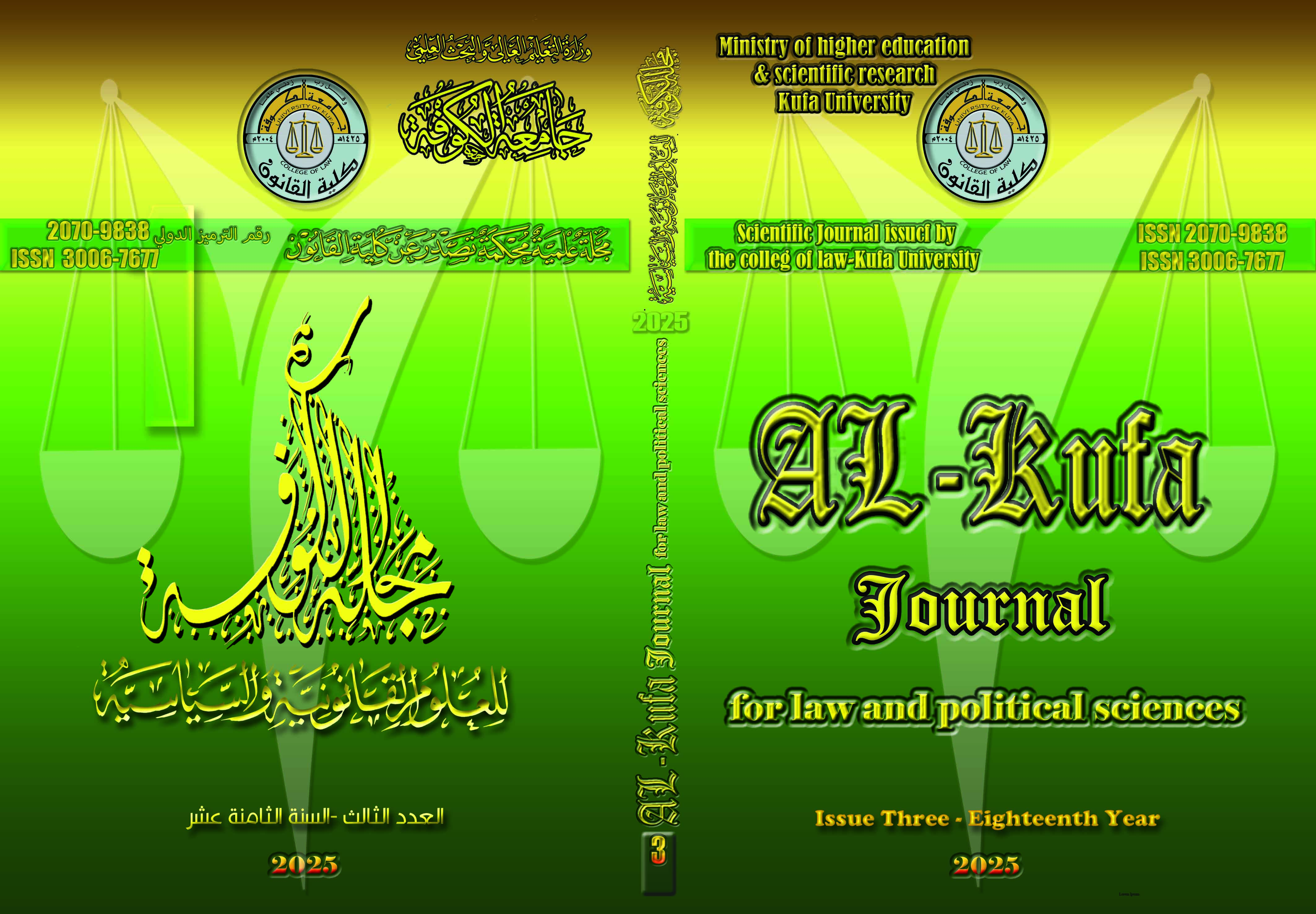Abstract
The task assigned to the administration is to maintain the regular and continuous operation of the public facility. At a time when the administrative decision does not achieve this goal, the administration has another weapon through which it can make the public facility meet needs and satisfy desires, namely the administrative contract. In the latter, not only is the administration’s will apparent, but the will of the other party with whom the administration contracts is also prominent in the contract. This is to arrange rights and obligations imposed on both parties, and upon acceptance of which, the response and acceptance between the two parties are achieved. The principle that governs these contracts concluded by the administration is that the personality of the contracting party is taken into account. That is, the qualities possessed by the other party are what prompted the administration to contract, and without them, the contract is disrupted. The development taking place today due to technological progress has made the administration conclude contracts in which the contracting person is not taken into account. These are contracts with names other than the real names of the persons contracting with the administration, which are concluded using artificial intelligence. Among these contracts are administrative contracts concluded using blockchain technology, which have certain characteristics that contain advantages and disadvantages that are different from those concluded by the administration in the traditional way with natural or legal persons. While the contracting method governs Traditional nature and certain legal provisions based on personal consideration and mandatory implementation. We note that this new type of contract (blockchain) is dominated by a legislative vacuum by the Iraqi legislator, unlike its counterpart in other countries, and this is what we will discuss in this research.
Keywords
Administrative contracts
artificial intelligence
contract drafting
Legal security
public administration
Abstract
ان المهمة التي تلقى على عاتق الإدارة هي المحافظة على سير المرفق العام بإنتظام واستمرار ، وفي الوقت الذي لا يكون القرار الإداري يؤدي هذه الغاية يكون للإدارة سلاح اخر تستطيع من خلاله جعل المرفق العام يلبي الحاجات ويشبع الرغبات الا وهو العقد الإداري ، وهذا الاخير لاتكون فيه ارادة الإدارة هي الظاهرة فقط وإنما تكون إرادة الطرف الثاني الذي تتعاقد معه الإدارة بارزة في العقد أيضا ، وذلك لترتيب حقوق وإلتزامات تفرض على الطرفين والتي بقبولها يتحقق الإجاب والقبول بين الطرفين ، والمبدأ الذي يحكم هذه العقود التي تبرمها الادارة يكون لشخصية المتعاقد معها محل اعتبار ، اي ان الصفات التي يمتلكها الطرف الاخر هي التي دفعت الإدارة للتعاقد وبفقدانها يختل العقد ، والتطور الذي يحصل اليوم بفعل التقدم التكنولوجي جعل الإدارة تبرم عقود لايكون للشخص المتعاقد محل اعتبار فيها ، فهي عقود تكون بأسماء غير الاسماء الحقيقية للأشخاص المتعاقدين مع الادارة والتي تبرم بالذكاء الاصطناعي ، ومن هذه العقود هي العقود الإدارية المبرمة بتقنية البلوك تشين والتي تمتلك خصائص معينة تحتوي على مزايا وعيوب هي غير تلك التي تبرمها الإدارة بالطريقة التقليدية مع الاشخاص الطبيعين او الاعتباريين ، وفي الوقت الذي تحكم فيه طريقة التعاقد التقليدية طبيعة واحكام قانونية معينة مبنية على الاعتبار الشخصي وإلزامية التنفيذ نلاحظ هذا النوع المستجد من العقود (البلوك تشين) يسود فيه الفراغ التشريعي من قبل المشرع العراقي على عكس نظيره في بقية الدول ، وهذا ماسنتناوله في هذا البحث.
Keywords
الأمن القانوني، العقود الإدارية، الإدارة العامة، صياغة العقود، الذكاء الصناعي
